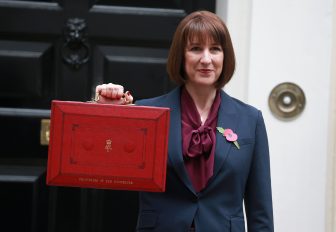
The Office for Budget Responsibility’s has mistakenly revealed within the last few minutes that chancellor Rachel Reeves is about to announce a “mansion tax” to homes worth more than £2m in her Budget statement.
The move is expected to hit more than 100,000 properties and could further dampen prices at the top end of the London market. The policy is expected to raise around £400m.
The OBS report states: “A high value council tax surcharge on properties worth over £2m, raising £0.4bn”.
The mansion tax will take effect from April 2028.
Responding to the introduction of an annual Mansion Tax on the portion of a property’s value over £2m, Nigel Bishop, founder of buying agency Recoco Property Search, said: “This tax is an outright punishment for those who have been able to buy a property decades ago, that since has gone up in value. It could mean financial ruin for many of these homeowners. A vast majority will have no other option but to sell up; likely at reduced asking prices. In theory, this frees up larger homes but doesn’t automatically mean there will be buyers waiting. On the contrary, I believe that the Chancellor’s idea of mansion tax will grind the property market to a halt.”
James Nightingall, founder of HomeFinder AI, commented: “A vast number of London property owners will be hit by Mansion Tax, particularly in central London where property values quickly exceed the £2m threshold. The problem is that the majority of these homeowners are asset rich but cash poor and will struggle to finance an annual levy of this magnitude.”
Matthew Thompson, head of sales at Chestertons, said: “We could see homeowners rushing to sell their home before the new tax takes effect but buyers will think twice to purchase a home that will be subject to such a levy in the future. This could lead to more high-value properties standing empty or force sellers to drastically reduce their asking price.”
Jennie Hancock, founder and director of West Sussex buying agency Property Acquisitions, said: “There’s no doubt this measure will have a significant impact on the country homes market in the South East. Properties priced between £2m to £4m are already struggling – I’m seeing discounts of as much as 25% for beautiful country houses that buyers would have been queuing up for just three or four years ago.
“Even with significant price cuts, there’s very little genuine interest. I expect this to worsen, creating a two-tiered market in which demand for higher-value properties falls even further, while the £1 – 1.7million price bracket becomes more buoyant.
“The one silver lining is that the tax won’t come into effect until 2028, which leaves a decent window for downsizers to make their move – and I expect many will, even if they have to take a hit on the price. Retirees on fixed incomes won’t want the burden of an additional annual bill they haven’t factored into their long-term plans.”
Jo Eccles, founder and MD of prime central London buying agency, Eccord, added: “The continued pursuit of those with wealth is deeply damaging and counterproductive. It doesn’t just impact the ultra-wealthy who are highly mobile and now have another reason to move elsewhere, at a significant loss to the UK economy. With the threshold set at £2 million, this measure directly impacts London’s upper-middle classes – who are typically households with mortgages and finite resources. Their outgoings can only stretch so far. Sentiment and morale are being pushed even lower, and many of them no longer view the UK as a place for prosperity where hard work and success are encouraged.
“One city professional told me recently that VAT on school fees alone is costing him an extra £700 a month, and if a mansion tax is added on top he will move to Switzerland. For many like him, this will be the final straw.
“This measure is likely to create a cliff edge at the £2m million mark and would effectively freeze the market just above it. We could see pressure on properties above those levels as sellers are forced to shoulder part of the burden by reducing their asking prices. And what about tenants? If this tax is collected through council tax then the liability will sit with them, pushing rents down and further discouraging landlords to stay in the market.”
Read the orginal article: https://propertyindustryeye.com/eye-newsflash-leaked-obr-report-confirms-mansion-tax-on-homes-over-2m/?utm_source=rss&utm_medium=rss&utm_campaign=eye-newsflash-leaked-obr-report-confirms-mansion-tax-on-homes-over-2m


